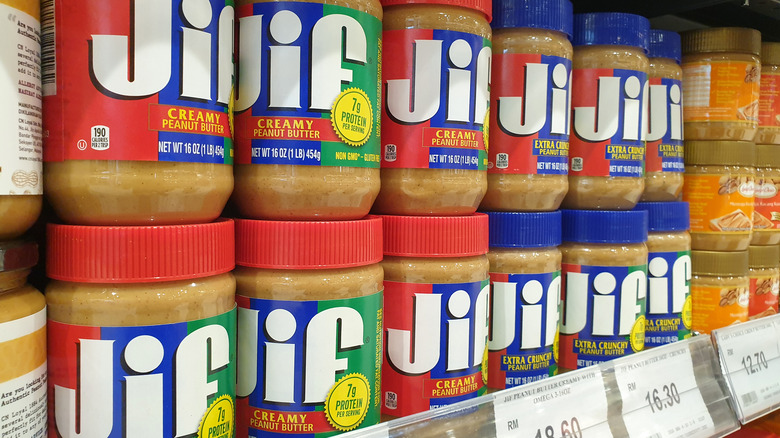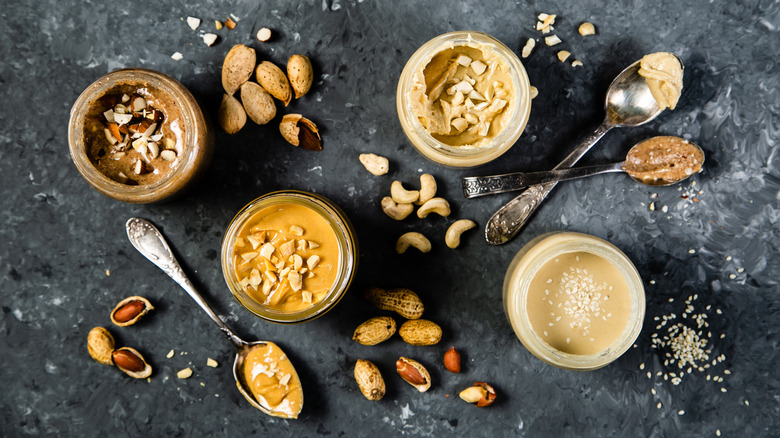The Reason You Should Never Buy Fresh Nut Butter On Sale
Though nut butter is known to be one of the most affordable, nutrient-dense ingredients available in most supermarkets, it can also get costly depending on the level of quality and production process. According to Livestrong, organic peanut butter could retail for almost double the amount of the standard blend.
Alternatively, some people prefer to buy fresh nut butter, which is usually ground in-store. At grocery stores like Whole Foods, this can be done by the customer themselves, by selecting the nut butter of their choice and loading their desired quantity into a container for purchase. Furthermore, not only is fresh nut butter more cost-effective, but it also holds a variety of benefits, including having more texture and not having the unnecessary additives that are in jarred versions, explains Cooking Light. However, those interested in fresh nut butter should also proceed with caution, especially when fresh nut butter is on sale.
Discounted nut butter comes at a cost
Few can resist a good sale, but it is important to be careful when reaching for fresh nut butter. According to The Market at DelVal, the shelf life of fresh peanut butter from Whole Foods is two weeks, which is comparatively shorter than factory-manufactured varieties (via National Peanut Board.)
Because fresh nut butter often just includes the nut itself, it lacks the preservatives that prevent it from perishing so soon, explains Whole Foods. So, while many people might find the simple ingredient list to be appealing, it might not even be worth investing in if you are unlikely to use it all in time. If you don't want to sacrifice the ability to enjoy fresh nut butter due to time constraints, you can always make your own by using a food processor. Minimalist Baker notes that is quick and simple — and you can make as much or as little of it as you want.

